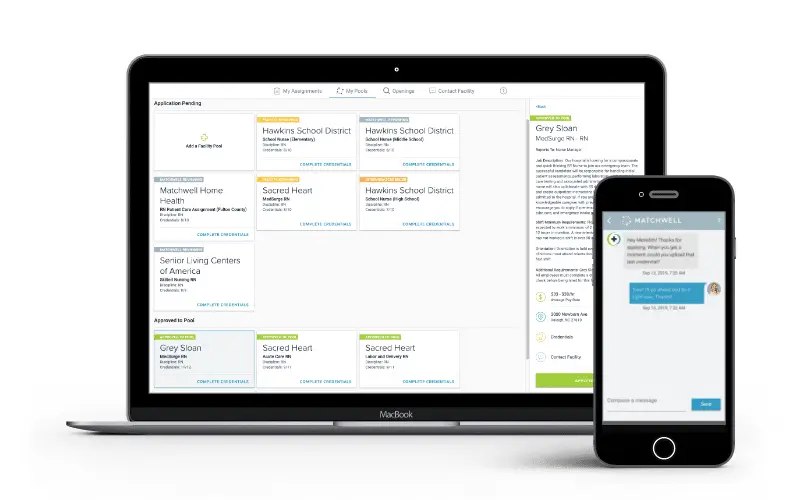My journey as a nurse started July 1, 2001 at 6am. And no, that isn’t the time my alarm went off to wake me for my first class. I was actually lying in a field after visiting a small village in Letlhakane Botswana. It was my senior year of college and, like many young college students, I wanted to make a difference.
I was offered an opportunity to spend the summer in South Africa, serving at a large university. The last 2 weeks of our trip brought us to Botswana where we assisted locals in building a church. Several students and I were heading back to Johannesburg, South Africa after spending a week teaching at a local elementary school. An hour into our drive the driver lost control of the vehicle resulting in a wreck. Several of us sustained injuries requiring hospitalization.
During this hospitalization, I had my first interaction with nurses and they changed my life. Their care, support, and compassion not only provided much needed comfort for me, especially since I was thousands of miles away from home, but they also stirred a desire in me to do the same for others. I naively thought I was flying thousands of miles across the world to change the lives of others. Ironically it was my life that was forever changed.
Helping people is why I became a nurse and the top reason I think being a nurse rocks. It’s a superpower! So whether you’re thinking about becoming a nurse or you’re already a nurse and need to be reminded how awesome your job is, this article is for you.

Being a Nurse Rocks, Reason 1
Nurses Save Lives
Not many professions can brag that they get to save lives everyday. Whether you’re on the front lines of the ED or educating patients on how to extend their life by improving their health, your efforts have a lasting impact on your patients.

Being a Nurse Rocks, Reason 2
Nurses Have Options
I’ve done all kinds of jobs as a registered nurse. I started out as a mother baby nurse, then became a nurse educator for a nurse residency program, worked for several years in quality improvement, and recently left the hospital setting to work for Matchwell. Nursing is one of the few professions that you can move laterally, horizontally, or go totally off the grid and do something crazy like work for a tech startup. There’s something for everyone.

Being a Nurse Rocks, Reason 3
Nurses Get Exercise
No need to go to the gym when you’re a nurse at a hospital. When I worked bedside I could easily walk 4 – 6 miles in one shift. My busy patient assignment left little time for mindless snacking, forcing me to make smarter food choices. Heavy, high fat meals slowed me down and made the last part of my shift difficult.
I also spent a good part of my day educating patients on healthy food choices and exercise, so I felt ethically responsible to practice what I preached. For me, working with patients was a constant reminder of the investment healthy choices were for my future.

Being a Nurse Rocks, Reason 4
Nurses Can Have 3 Day Work Weeks
Yes, we all agree 12 hour shifts are laborious. And shifts aren’t really just 12 hours when you factor in the time it takes to get up, travel to work, get report, and then close out your shift. The upside is you have 4 glorious days off each week to do whatever you want! When I worked at the bedside, I loved having 4 days to myself. My husband and I traveled, I spent time reading, exercising, decorating our home, or just spending time with friends. I could even arrange my schedule where I wouldn’t have to take any PTO but I could have over a week off.
After a few years, I moved into a position that was a typical 5 day per week set of hours and, while I did have more time at home in the evening, I missed having 4 full days to myself. Weekends went by way too fast. Trust me, the grass is not always greener.

Being a Nurse Rocks, Reason 5
Nurses Are in High Demand
I graduated from nursing school in 2007 and quickly realized that it’s a nurse’s market. Not only was it easy to schedule interviews, but I had numerous job offers right out of the gate. At the time, I was told that new grads worked night shift, every other weekend, and all the major holidays. But the market was so hungry for nurses, I landed a job at a specialty hospital working days and every 3rd weekend. Due to the clinician deficit, nurses are now better positioned to negotiate a flexible work schedule.

Being a Nurse Rocks, Reason 6
Nurses Can Now Access the Gig Economy
If negotiating isn’t really your thing, perhaps you’d be more interested in a platform where you could easily engage with facilities that were offering flexible work opportunities.
Meet Matchwell. The online marketplace where clinicians and healthcare facilities come together for flexible work. Work a full time job, but want a few extra hours on the side? Sure thing. Have little ones at home and need a super flexible schedule? You got it. Want to start scaling back as you approach retirement without having to completely quit doing what you love? No problem. Matchwell empowers you, the clinician, to completely set your own schedule.

Here’s How It Works
Join
Matchwell is 100% free for clinicians, only takes seconds to create an account, and comes with a free credential portfolio. Tell us about your experience, when and where you’d like to work, and your preferred pay rate.
Apply
Browse openings and apply to the ones that work for you. Matchwell even gives you the ability to communicate directly with the hiring manager if needed.
Work
Once approved, the hiring manager coordinates on-boarding with the clinician and provides first day instruction. After the assignment is completed, both get the opportunity to rate their experience.
As a result, clinicians are empowered to set their own schedule to achieve the work-life balance they greatly need, facilities gains access to the clinical staff they desperately need (while avoiding heavy fees incurred through the usage of staffing agencies), and both are able to focus more on providing excellent care to their patients.
Next Steps
Now is the time to join the revolution. Together we can give clinicians control of their calendar, defeat the nursing deficit, and ultimately make an incredible impact on the healthcare industry.

